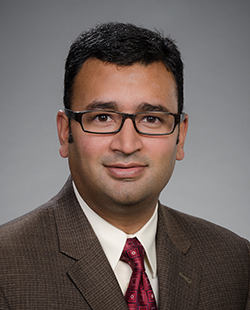Heart Surgery Residents Ready to Save Real Lives After ‘Out of Body’ Training Experience
 Largest, Most Comprehensive Study of Simulated Surgery Shows Practice May Help Improve Patient Outcomes
Largest, Most Comprehensive Study of Simulated Surgery Shows Practice May Help Improve Patient Outcomes
CHICAGO (August 25, 2016) — Simulation training for surgery residents builds confidence and could have a life-saving impact on patients undergoing cardiac surgery, according to two studies published online today in The Annals of Thoracic Surgery.
“Simulation training should create better surgeons who are trained much more efficiently,” said Richard H. Feins, MD, from the University of North Carolina at Chapel Hill, who led one of the studies. “This type of learning allows surgery residents to develop their knowledge, skills, and confidence, before going into the operating room, thus protecting patients from unnecessary risks.”
Dr. Feins, Nahush A. Mokadam, MD, (pictured left) from the University of Washington in Seattle, and James I. Fann, MD, from Stanford University in California, were among leaders from eight major cardiothoracic surgery residency programs in the United States who formed the Cardiac Surgery Simulation Consortium.* Read more >>
*The Cardiac Surgery Simulation Consortium also included Jennifer D. Walker, MD, from Massachusetts General Hospital, John V. Conte, MD, from Johns Hopkins University, Jonathan C. Nesbitt, MD, from Vanderbilt University, George L. Hicks, MD, from the University of Rochester, and Harold M. Burkhart, MD, from the Mayo Clinic, and K. Robert Shen, MD, from the Mayo Clinic.
The Annals of Thoracic Surgery is the official journal of STS and the Southern Thoracic Surgical Association. It has a 5-year impact factor of 3.433.
